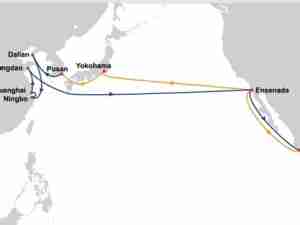DryShips also signaled rosy days for its drilling segment, which now accounts for half of its revenue, setting the tone for a highly anticipated IPO of that business.
The Athens-based company, which has maintained contracts were essential for an IPO, has won two drilling contracts in as many months.
"The ultra deepwater market has turned a corner in the last couple of months and we believe that current enquiry from operators matches or may even exceed the supply available in 2011," Chief Executive George Economou said.
The company said rates for ultra deepwater rigs bottomed in the low-$400,000 per day range in the third quarter of 2010 and are now trending upwards.
"The rig business is certainly improving," Cantor Fitzgerald analyst Natasha Boyden said. "They are in a very good position to get contracts for the remaining three newbuilds."
Credit Suisse analyst Gregory Lewis said if last week's contract is any indication the drilling market is improving.
Lewis and Boyden are five-star rated marine sector analysts, according to Thomson Reuters StarMine.
Drilling Story
DryShips shares normally move in line with the Dow Jones U.S. Oil Equipment & Service Index given that most of its ships are on long-term contracts, taking volatile spot rates out of play.
After the recent contract wins, however, shares of DryShips have trailed the oil equipment index as well as the Baltic Exchange's main sea freight index <.BADI>, which gauges the cost of shipping dry bulks, reflecting investor uncertainty over the company's strategy.
"A majority of the company's vessels are on long-term contracts and the real story behind the share move is what happens with its drilling business," Credit Suisse's Lewis said.
The company reported an adjusted profit of 38 cents a share, above estimates of 25 cents a share. Revenue rose just over a percent to $225.5 million, as a rise in the drilling segment offset a dip in the company's drybulk segment.
While strong drilling results proved DryShips is no longer just a shipping story, the dry bulk segment did pull its weight, as the company earned higher rates from its long-term contracts.
"The decision to fix out our dry bulk fleet has paid off as our time chartered fleet continues to outperform the spot market," CEO Economou said in a statement, adding that over 80 percent of 2011 ship days were fixed at about $37,000 per day. (Reuters)







